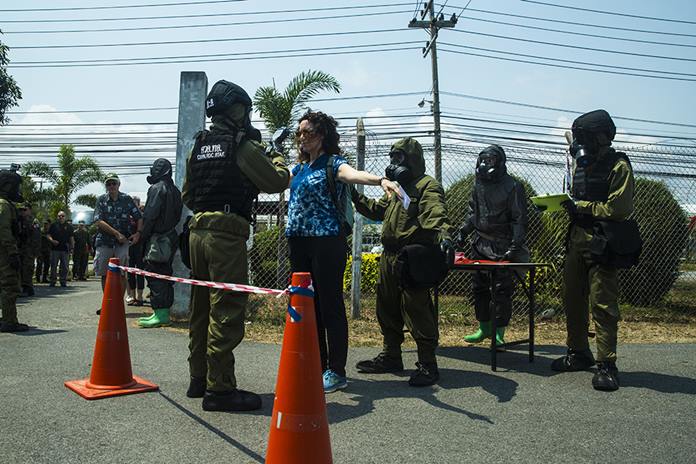
Utapao, Kingdom of Thailand – Civilians stream through the gates into view of Department of State personnel and military service members welcoming them with clear directions. A military working dog sniffs for hazardous materials, and a bilateral chemical response team stands by to decontaminate evacuees.
Led by the Japan Self-Defense Force, the simulated noncombatant evacuation operation proceeds efficiently and smoothly as citizens from the United States, Japan, and Thailand are safely sorted, processed, and prepared for follow-on travel, during a major trilateral evolution as part of exercise Cobra Gold 2020.
For exercise Cobra Gold 2020, the United States, Japan, and Thailand co-located their evacuation control centers in the same area to share tactics, techniques, and procedures, and to demonstrate their partnership in addressing potential security challenges together in the Indo-Pacific. According to Maj. Gen. John P. Johnson, deputy commanding General of U.S. Army Pacific, the trilateral nature of the exercise is key.
“Noncombatant evacuation operations are a national responsibility, so each nation has to sort out how it wants to do that. The advantage of doing it this way is that it’s an effective way to share best practices between our countries,” Johnson stated.
As the lead in the trilateral exercise, the training was valuable for the Japanese side as well, according to Col. Iwakami, commander of the Central Readiness Regiment with the Japan Self-Defense Force.
“Through these exercises, we strengthen our joint employment capabilities, and also improve our cooperation with government agencies,” said Iwakami. “Exercises like this strengthen our ties of cooperation and collaboration among U.S Forces and Royal Thai armed Forces.”
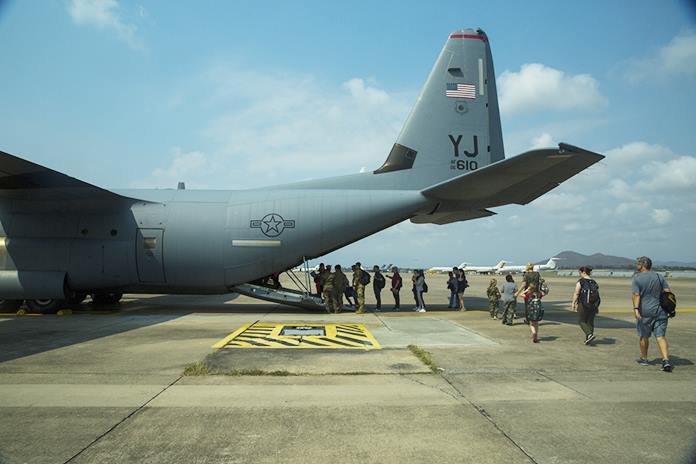
NEOs are conducted when civilians in a foreign country need to be safely evacuated due to a deteriorating security environment. For the exercise, evacuees from each of the three countries proceeded through security provided by U.S. Army soldiers, JSDF service members, and Royal Thai Marines for processing. After a search for hazardous objects by a 31st Marine Expeditionary Unit military working dog, evacuees were paired with a military member to shepherd them through the next step of the process. Within the processing area, evacuees were then interviewed by their respective nation’s government personnel to verify their identity prior to embarking on military transport.
To simulate a chemical, biological, radiological or nuclear crisis, a bilateral decontamination team of 31st MEU and Royal Thai Marines conducted a decontamination rehearsal. After identifying hazardous materials on a role player, members of the decontamination team led the simulated victim through a full decontamination process and medical check-up for demonstration purposes. The chance for service members from each nation to conduct this process alongside one another was important in the case of future contingencies, according to Royal Thai Navy Capt. Phollakit Salai.
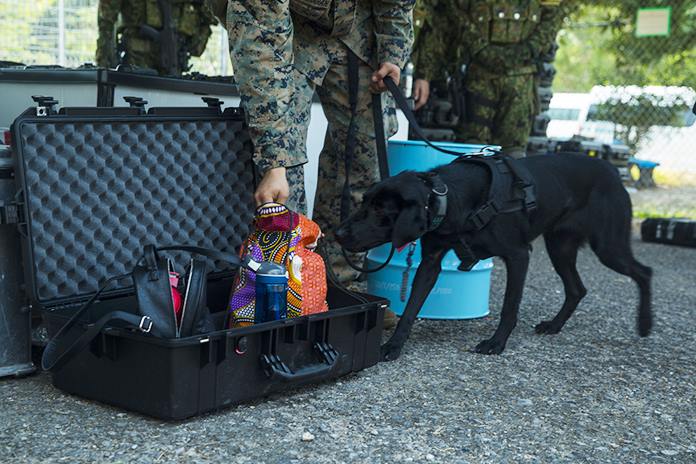
“The training fosters a good relationship between nations and personnel,” explained Salai. “It gives us mutual understanding and prepares us for the coordination necessary if a real NEO situation arises in the future.”
For the exercise, the United States’ ECC was run by Marines from Combat Logistics Battalion 31, 31st MEU, in tandem with a security element from the U.S. Army’s 25th Infantry Division, as well as Department of State personnel. As the Indo-Pacific’s premier crisis-response force, the 31st MEU regularly trains to conduct NEOs in the wake of contingencies. According to CLB-31’s commanding officer, integration with the Department of State is a key aspect of this preparation.

“We are both a training aid for the State Department and them for us. This is a multinational and joint training opportunity where the State Department has the lead and we support them where necessary,” Johnson explained. “This mission is interagency combined arms. We are just one aspect of the combined arms power but they are the lead aspect of it.”
After being successfully led through the ECC, the 60 U.S. evacuees departed via Air Force C-130 aircraft to complete the exercise. The process, which had over 100 civilian role players from the three countries, took approximately four hours.
Exercise Cobra Gold demonstrates the commitment of the Kingdom of Thailand and the United States to our long-standing alliance, promotes regional partnerships and advances security cooperation in the Indo-Pacific region.
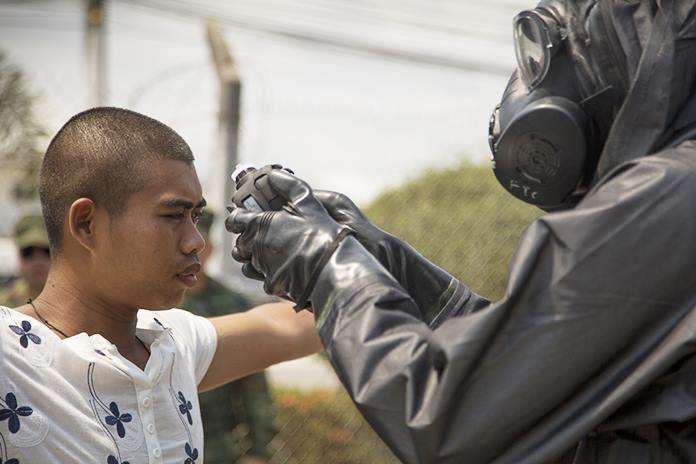
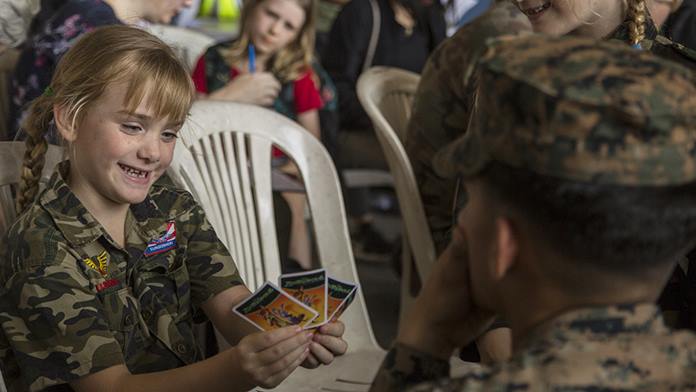
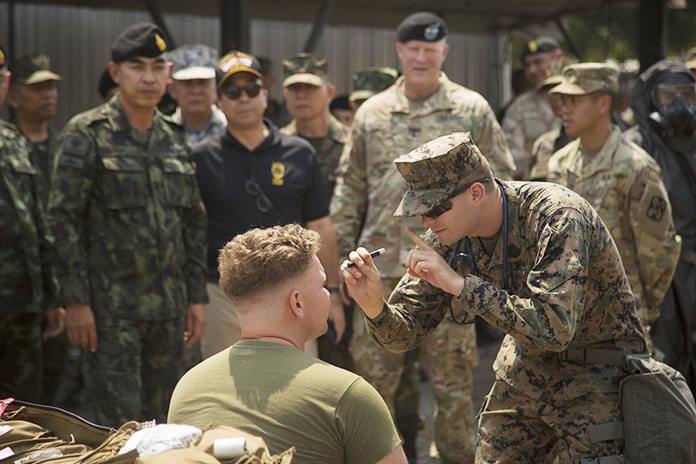
 |
 |
 |





